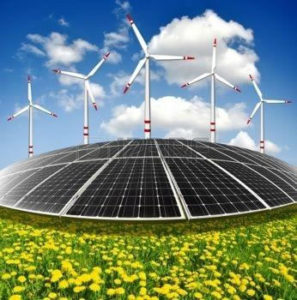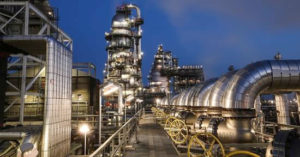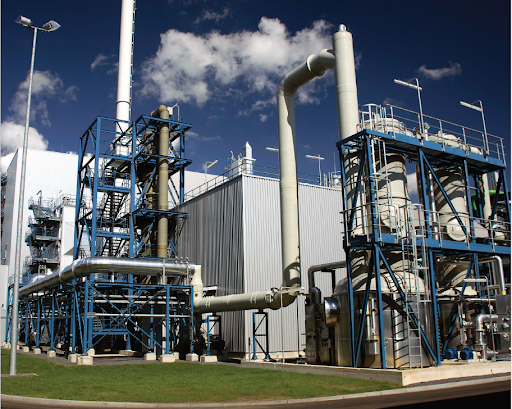Solar and Wind
 The energy sector in Africa is a priority for both governments and international partners. Oil price fluctuation, the shortage of fossil fuel, and environmental problems are critical issues of which are of concern to the global and domestic communities. Wind and solar are powering a clean energy revolution. This means that renewables are increasingly displacing fossil fuels in the power sector, offering the benefit of lower emissions of carbon and other types of pollution. Global Green Energy, LLC (GGE) a subsidiary of Global Green Development Group (GGDG) is developing both on-grid and off-grid energy solutions that work to enhance economic growth and industrialization. Solar and wind are renewable alternatives to on-grid electricity and allows more flexibility in connecting rural areas where it is not easy to provide a feedstock supply. GGDG is working with local communities to install solar and wind projects that are both economical and eco-friendly.
The energy sector in Africa is a priority for both governments and international partners. Oil price fluctuation, the shortage of fossil fuel, and environmental problems are critical issues of which are of concern to the global and domestic communities. Wind and solar are powering a clean energy revolution. This means that renewables are increasingly displacing fossil fuels in the power sector, offering the benefit of lower emissions of carbon and other types of pollution. Global Green Energy, LLC (GGE) a subsidiary of Global Green Development Group (GGDG) is developing both on-grid and off-grid energy solutions that work to enhance economic growth and industrialization. Solar and wind are renewable alternatives to on-grid electricity and allows more flexibility in connecting rural areas where it is not easy to provide a feedstock supply. GGDG is working with local communities to install solar and wind projects that are both economical and eco-friendly.
GGE distributed solar systems generate electricity locally for homes and businesses, either through rooftop panels or community projects that power entire neighborhoods. Solar farms can generate enough power for thousands of homes, while Floating Solar Farms or “floatovoltaics” can be an effective use of wastewater facilities and bodies of water that aren’t ecologically sensitive. Solar farms installed in the farmlands or “agrivoltaics”, not only power farms, but also save land space, and can also power neighboring communities. Solar energy systems don’t produce air pollutants or greenhouse gases, and as long as they are responsibly sited, most solar panels have few environmental impacts beyond the manufacturing process.
Wind has become one of the cheapest energy sources in the world today, and can be installed either on land or in the water to save on land space and to achieve increased wind speeds. Wind farms can generate power on a massive scale. Wind is a more efficient power source than solar. Compared to solar panels, wind turbines release less CO2 to the atmosphere, consume less energy, and produce more energy overall. In fact, one wind turbine can generate the same amount of electricity per kWh as about 48,704 solar panels.
Renewables don’t just help reduce emissions; they also employ tens of thousands of people in. In fact, renewables tend to support more employment per unit of electricity than their fossil-fueled counterparts do. Renewables also avoid the health, social, and environmental dangers of extracting and burning fossil fuels. Those harms range from air and water pollution to climate-warming emissions that contribute to more coastal flooding, more destructive hurricanes, and longer wildfire seasons. Many of these harms disproportionately affect low-income communities.
Biofuel
 Global Green BioEnergy Limited (GGBL) – Global Green Bioenergy Limited (GGBL) is a division of Global Green Development Group (GGDG), a consortium of companies that provide services to emerging economies of Sub Saharan Africa. While emissions from fossil fuel damages our environment and generates greenhouse effects, biofuel is considered as a clean and renewable energy. In pure form or blended with petroleum diesel, biofuel can be used as a transport fuel in diesel engines. Biofuel reduces and preserves fossil fuels consumption and emissions; therefore, biofuel is garnering so much attention today. Biodiesel is also widely used in underground mines because it reduces miners’ exposure to air-borne diesel particulate matter (DPM). GGBL Jatropha-to-biofuel project goes beyond combating hunger and poverty amongst smallholder farmers. Many factors have been included to ensure that the project has a positive social and economic impact to both the country and the environment. Jatropha biofuel crops produce a net negative carbon footprint, while enabling an alternative jet fuel carbon-reduction strategy to combat climate change, by reducing carbon emissions from global aircraft, and producing a clean and steady supply of biodiesel for the smallholder farmer.
Global Green BioEnergy Limited (GGBL) – Global Green Bioenergy Limited (GGBL) is a division of Global Green Development Group (GGDG), a consortium of companies that provide services to emerging economies of Sub Saharan Africa. While emissions from fossil fuel damages our environment and generates greenhouse effects, biofuel is considered as a clean and renewable energy. In pure form or blended with petroleum diesel, biofuel can be used as a transport fuel in diesel engines. Biofuel reduces and preserves fossil fuels consumption and emissions; therefore, biofuel is garnering so much attention today. Biodiesel is also widely used in underground mines because it reduces miners’ exposure to air-borne diesel particulate matter (DPM). GGBL Jatropha-to-biofuel project goes beyond combating hunger and poverty amongst smallholder farmers. Many factors have been included to ensure that the project has a positive social and economic impact to both the country and the environment. Jatropha biofuel crops produce a net negative carbon footprint, while enabling an alternative jet fuel carbon-reduction strategy to combat climate change, by reducing carbon emissions from global aircraft, and producing a clean and steady supply of biodiesel for the smallholder farmer.
GGBL quality and standards are promoted accordingly for sustainable development of its biofuel products. The company has commenced performance to produce Jatropha derived biofuels, as well as high-quality and innovative Jatropha by-products.
GGBL provides the foreign direct investment for the program and has identified 225,000 hectares of farmland for intercropped cultivation, and thousands of participating farmers in Africa, for its feedstock production. The jatropha seed oil is extracted locally with goals of using 30% of the extracted seed oil for producing biodiesel fuel for domestic consumption, and exporting 70% biocrude seed oil to the USA for its sustainable alternative jet fuel (SAF) production program. The company plans to install multiple modular biodiesel refineries throughout Africa utilizing the seed oil that remains on the continent.
Renewable Green Diesel & Sustainable Aviation Fuel (SAF)
 Global Green Energy LLC – GGE is a renewable energy company that brings together leaders in the renewable fuels industry and leverages their strengths – from financing feedstocks to fuel manufacturing to marketing. This bilateral approach creates sustainable, economic, non-food biofuels business at a commercial scale. Airline executives, top shipping companies and biofuel developers say they see huge potential for this new industry, but they need a reliable supply, which means supportive government policy to develop supply chains that can compete with petroleum and producers of renewable fuels. Global Green Energy LLC has created a plan to develop regional bio-refineries to be located throughout the United States to address the huge supply in demand. GGE is currently planning the development of a 360,000,000 gallon per year fully Integrated Bio-refinery Production Enterprise (IBPE) in Louisiana (Region 2).
Global Green Energy LLC – GGE is a renewable energy company that brings together leaders in the renewable fuels industry and leverages their strengths – from financing feedstocks to fuel manufacturing to marketing. This bilateral approach creates sustainable, economic, non-food biofuels business at a commercial scale. Airline executives, top shipping companies and biofuel developers say they see huge potential for this new industry, but they need a reliable supply, which means supportive government policy to develop supply chains that can compete with petroleum and producers of renewable fuels. Global Green Energy LLC has created a plan to develop regional bio-refineries to be located throughout the United States to address the huge supply in demand. GGE is currently planning the development of a 360,000,000 gallon per year fully Integrated Bio-refinery Production Enterprise (IBPE) in Louisiana (Region 2).
The IBPE will produce primarily sustainable aviation fuel (SAF) at the highest quality, for both domestic and international consumption by the U.S. Department of Defense and the commercial airlines. It will also produce renewable green diesel for the transportation industry. Both the sustainable aviation fuel and renewable green diesel fuels will help to reduce up to 85% of the carbon emissions from transportation and aviation. Using hydro processing technology, allows for the intake of multiple cellulosic feedstocks. At least 200,000+ acres of feedstock will be cultivated locally nearby the new facility, while a proprietary brand of jatropha will also be cultivated in Africa and Mexico as secondary supply sources. The company has three additional regional renewable diesel bio-refineries planned throughout the USA.
Power Generation

Global Green Orufe Industries Limited (GGOIL) – On July 1, 2013 Global Green Development Group (GGDG) registered GGOIL as a Project Company for the development of an Industrial Complex in Imo State, Nigeria. GGDG was established to meet the one stop needs of developing countries by providing turn-key solutions through well-defined master planning. The project is a long-term development which is scheduled to take place over a ten-year period in three phases. The development is located in Oguta, and is situated near Oguta Lake, one of Nigeria’s largest bodies of inland water.
Nigeria is endowed with the tenth largest proven natural gas reserves in the world. Nigeria alone could provide the power needs of all of West Africa, and is equivalent to the annual power generation in sub Saharan Africa. Flaring in the Niger Delta releases some 35 million tons of carbon dioxide annually into the air. The extent of human damage attributable to gas flaring is very high, the GGOIL project will drastically improve the quality of life and help to offset global warming by reducing the carbon emissions which are being released into the atmosphere. The purpose of the project is to harness the abundant gas reserves in Nigeria.
The Industrial Complex is a multi-phase development program consisting of an initial 300 hectares (741.30 acres). The project is designed to bring heavy industries to Imo State to enhance the state’s overall GDP and economic stability, while fomenting an environment for job creation for its citizen’s. Phase 1 of the project will involve construction of a 300 MW gas power plant, and include on-site transformers, gas processing and approximately 20km of gas pipeline to transport the natural gas feedstock to the power generation facility from a nearby gas field. The power plant is going to quickly add to Nigeria’s much needed power generation capacity, while the industrial complex will supply jobs for the entire region.
GGE is a renewable energy company which brings together leaders in the renewable fuels and power generation industries and leverages their strengths – from financing feedstocks to fuel manufacturing, to generation, to marketing. This bilateral approach creates a sustainable, economic, eco-system on a commercial scale.
